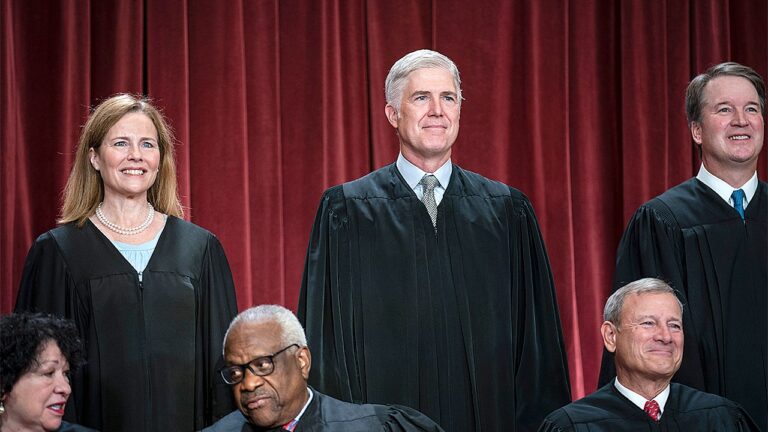Supreme Court Reviews Trump’s Tariff Powers
The Supreme Court convened on Wednesday to consider a significant case regarding President Donald Trump’s authority to impose tariffs using an emergency law. Even justices appointed by Trump expressed reservations about the administration’s arguments pertaining to the use of the International Emergency Economic Powers Act (IEEPA).
Key Concerns Raised by Justices
During the oral arguments, conservative justices, notably Neil Gorsuch and Amy Coney Barrett, raised questions regarding Trump’s claim to impose a sweeping 10% tariff on most imports. The implications of a ruling against the administration could substantially impact Trump’s economic agenda, a cornerstone of his presidency.
IEEPA: Defining the Boundaries of Presidential Power
The International Emergency Economic Powers Act provides the president with broad economic authority during national emergencies related to foreign threats. However, it does not explicitly mention tariffs or taxes, a crucial point of contention highlighted during the hearings. The justices scrutinized a specific phrase in the law that grants the power to “regulate importation” and debated whether it supports Trump’s tariff strategy.
Concerns over Separation of Powers
Both Gorsuch and Barrett seemed apprehensive about the potential for this interpretation to grant excessive authority to the executive branch, potentially infringing on Congress’s exclusive power over taxation and revenue. Barrett notably challenged U.S. Solicitor General D. John Sauer, asking for historical precedents concerning the claim of tariff-imposing authority under the stated law.
Challenges to Tariff Implementation
Critics of Trump’s tariff policy, including Democratic-led states and private entities, argue that Congress must explicitly authorize presidential power to impose tariffs. Previous cases, such as those involving Section 232 for national security trade measures, demonstrated that Congress has clearly delineated tariff powers in the past. They contend that the vague nature of IEEPA does not meet this standard.
The Liberal Justices’ Perspective
The liberal justices echoed the notion that without clear language from Congress, IEEPA lacks the authority needed for Trump’s tariff initiatives. Following a ruling in the Loper Bright case, federal courts are less inclined to interpret ambiguous laws favorably for executive authority. As underlined by Gorsuch, large-scale economic measures like tariffs require clear and specific congressional approval.
Implications of the Court’s Decision
Legal analysts and experts expressed caution following the oral arguments, indicating that a ruling favoring the administration might be less straightforward than anticipated. Jonathan Turley, a law professor, noted that the justices exhibited skepticism towards the extent of Trump’s claimed authority, yet a fractured ruling could still provide a partial victory for the administration.
Conclusion and Anticipated Ruling
The case, titled Learning Resources, Inc. v. Trump (consolidated with Trump v. V.O.S. Selections), is poised to have lasting consequences for executive powers in tariff regulation. A ruling from the Supreme Court is expected by late June, with significant ramifications for the balance of power between Congress and the President.
